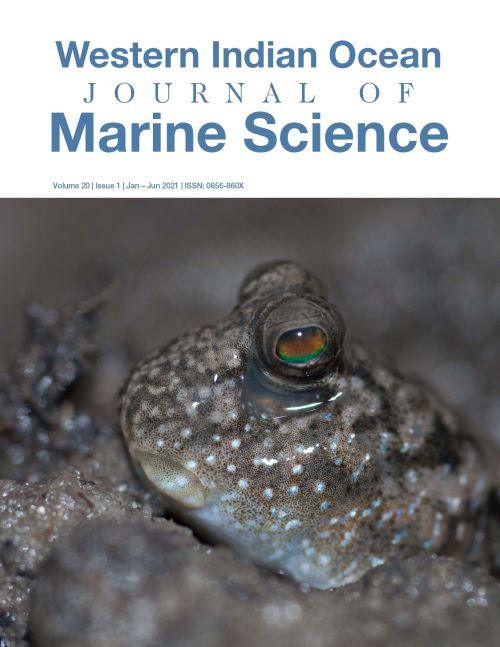Main Article Content
Quick and cost-effective mapping of subsistence and artisanal fishing areas within and adjacent to a marine protected area
Abstract
Spatial information on artisanal fisheries is largely lacking, making subsequent management and threat or impact assessments difficult. Local knowledge, current and readily available mapping software and Global Positioning System (GPS) techniques were used to map small-scale (subsistence and artisanal) fishing areas within and adjacent to the western boundary of the Ponta do Ouro Partial Marine Reserve in southern Mozambique. Data on habitat types were collected in the field and combined with available literature. Thirty-one fishing areas were identified and mapped resulting in a total area of 293.1 km2 with a perimeter of 396.7 km, from the Inhaca Island lighthouse in the north to the Maputo River mouth in the south. Habitats within the fishing areas included isolated intertidal sand banks, seagrass beds, estuarine channels, as well as intertidal muddy areas adjacent to the coast. The fishing areas covered on average 9.5 km2 (SD=12.0) and varied immensely in size (0.3–50.1 km2). Overall, 58.4 % (171.2 km2) of the total fishing area mapped was located inside the reserve. Costs associated with data collection equated to an average of U$D 3.61 per mapped km2 or U$D 2.63 per km tracked. The method was found to be quick, cost-effective and easily replicable elsewhere.






